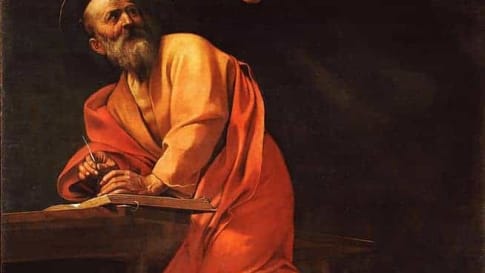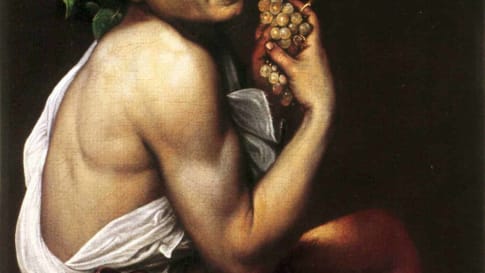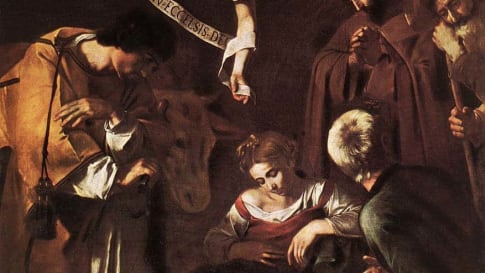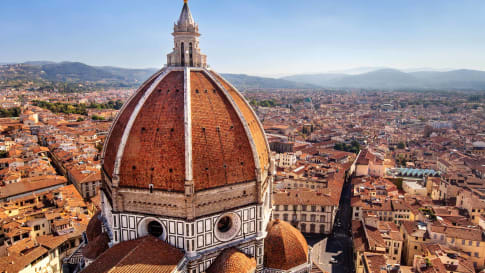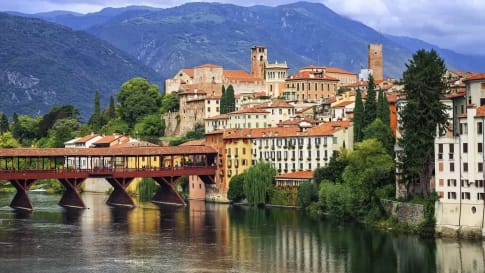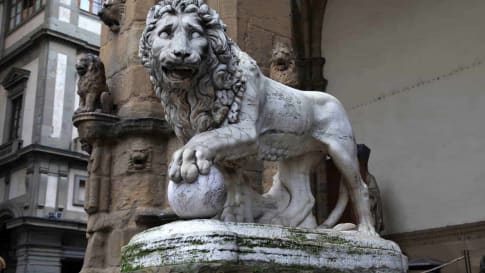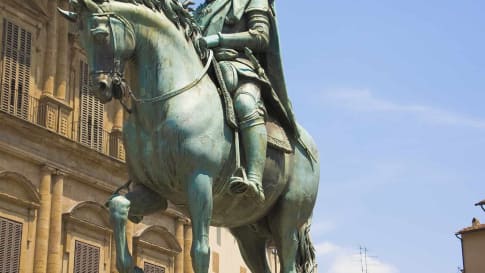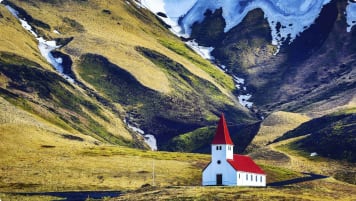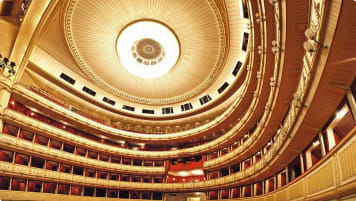Caravaggio’s Journey | Small Group Tour in Italy
On this small group tour of Italy and Malta for mature and senior couples and solo travellers we trace the life of Caravaggio, exploring the artistic works he left behind and the tumultuous life he led. We follow him from his birthplace in Milan to Rome, Malta, Sicily and Naples. In each place he lived Caravaggio left behind a rich legacy of art for us to admire.
From $13,717CAD
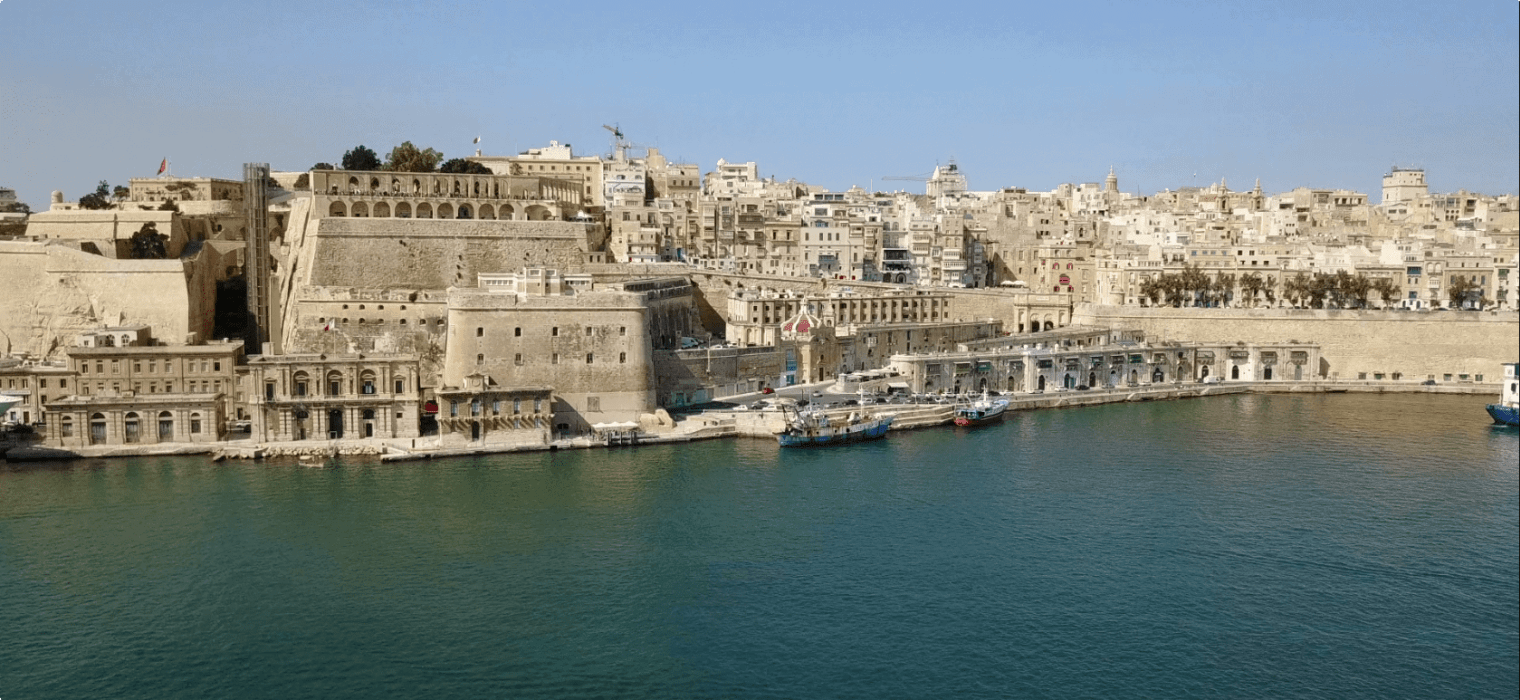
Highlights
- 1. Learn from 20 local guides about Caravaggio as you visit over 35 relevant locations
- 2. See the wonders of the Palatine Gallery at the Pitti Palace, in Florence.
- 3. Enjoy a private tour of the Casino Ludovisi in Rome, complete with a Caravaggio
- 4. Follow Caravaggio across Italy to Malta, on to Sicily and back to Italy in 19 days

Departure Dates
| Departure Date | Price |
|---|---|
| 10 October 2025 Ends 29 October 2025 • 20 days $14,406 Twin $16,916 Single Available | Selected |
| 04 May 2026 Ends 23 May 2026 • days $14,406 Twin $16,916 Single Available | |
| 09 October 2026 Ends 28 October 2026 • days $14,406 Twin $16,916 Single Available |
Caravaggio’s Journey through Italy and Malta
Odyssey offers easy, convenient, and relaxed escorted small group tours across Italy and Western Europe. We explore Italy's’s fairy-tale natural beauty, its ancient Roman, and Imperial heritage, its World Heritage Sites, and world famous cities, all with some truly spectacular scenery along the way as we follow Caravaggio. This and more is all waiting to be explored on one of Odyssey’s small group tours of Italy designed for the senior traveller, and led by experienced, and enthusiastic like minded people.
Our escorted small group Caravaggio tour follows in the footsteps of this brilliant but troubled Italian painter. Born Michelangelo Merisi in the city of Milan in 1571, Caravaggio became one of the most famous painters of his time and became known for his intense, large-scale religious works. However, his quarrelsome nature and propensity for getting into trouble led to his rapid departure from many cities. Caravaggio established a brilliant artistic reputation but annoyed the authorities. His legacy retains an element of mystery that continues to enthral lovers of his work.
On this tour, you will have the opportunity to gain greater insight into this complex man who died at the age of just 39, while also taking in the beautiful scenery that Italy and Malta have to offer. Along with witnessing and learning about breathtaking art, you will explore amazing landscapes and have the chance to try delicious regional cuisine. One of the best aspects of this program is that you not only get to visit some of Italy's most popular destinations but you also get the chance to take the road less travelled and experience a different side of Italy informed by Caravaggio's unique biography.
This small group tour traces Caravaggio's journey, exploring the artistic works he left behind and the tumultuous life he led. We follow him from his birthplace in Milan to Rome, Malta, Sicily and on to Naples. He died under mysterious circumstances on his way back to Rome in 1610.
A controversial lifestyle forced Caravaggio from Milan to Rome. While in Rome, he was accused of murder and forced to flee again. Naples followed, and it was during this period that Caravaggio painted two magnificent altarpieces, The Flagellation of Christ and The Seven Works of Mercy. The success of these led to further commissions, and the artist’s intense realism ushered in a new school of painting. It is not known why Caravaggio left Naples for Malta, but it appears he was welcomed here by the Order of Knights Hospitaller of St John of Jerusalem.
The Knights of St John were drawn from among the most aristocratic families of Europe and were very proud of their position in society, as well as their history of military prowess. It would appear that Caravaggio had little to offer in this regard, apart from his fame as a painter. But he impressed the Grand Master and was made a Brother - a move that attracted more controversy. The rumours of murder were a concern to many, since murderers were prohibited from joining the order. Before long, Caravaggio was expelled anyway. He was involved in an assault on a higher order Knight and was arrested. He escaped and fled to Sicily. Here, it is believed he suffered from loneliness, but produced some of his greatest works. David With the Head of Goliath shows a pensive David holding a head that bears the artist's own features, ravaged by time and excess. Caravaggio sailed North from Naples back to Rome, but died on the journey in 1610.
Caravaggio was one of the most revolutionary painters of his time. He was the first great exponent of the Baroque School and his use of an intense form of chiaroscuro influenced many later painters, including Rembrandt and Rubens.
During his lifetime, however, it was not just his quarrelsome nature that caused him problems but also the style of his painting. Caravaggio's style was both lauded for its remarkable spirituality and condemned for being too realistic. At times, his critics saw his intense realism as bordering on the sacrilegious as he painted visceral scenes from the bible as if they were bloody dramas.
This thought-provoking article from the Guardian considers how we might appreciate art that is tainted by the sins of its maker. You could also watch this insightful documentary on Caravaggio. His work, 'Nativity' is also on the list of the FBI’s ‘most-wanted stolen works of art’.
Caravaggio Tour in Italy | Itinerary & Highlights
The tour begins in Milan where you will have the chance to stroll through the streets of Italy's most elegant city. We will enjoy a full day art tour here before moving on to Florence, with a lunch stop in Bologna. Here, at the birthplace of the Renaissance, we will see some Caravaggio's most important paintings as well as other memorable artworks in some of Europe's best art galleries.
Later, we transfer to Rome where we see some of the most iconic sites of Ancient Rome. The second day in Rome we enjoy a full day of the Galleria Doria Pamphilj and the Contarelli Chapel at San Luigi dei Francesi. Here we see several of Caravaggio's canvases and learn about the history of these pieces.
After a few more days of exploring and discovering in Rome, we head to Malta. In Malta, we stay in Sliema and visit the Grandmasters Palace and learn about Caravaggio's life as a Brother before his expulsion.
From Malta, it is onto Sicily. In Taormina, we will see the paintings of Mario Minniti, a lifelong friend of Caravaggio's. Minniti is thought to have been instrumental in procuring many of Caravaggio's commissions in Sicily.
We then head to Palermo in northwest Sicily to see Caravaggio's one remaining work here: the Seven Works of Mercy at Pio Monte della Misericordia.
From Palermo, we travel to the mainland coast, to Naples. We spend a day in stunning Sorrento, before making our way back to Rome to end this amazing travel experience.
If you wish to extend your stay in Italy, Odyssey's 3 week long stay tour studying Florence is typically paired with this tour. You can learn more about Italy with our country profile where all other tour departures are listed as well. For more details about this tour, click the ‘Top 5’ or ‘Itinerary’ buttons above! If you’re keen to experience this tour, please call or send an email. Or, to book, simply fill in the form on the right hand side of this page.
Gallery
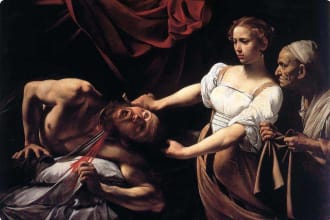
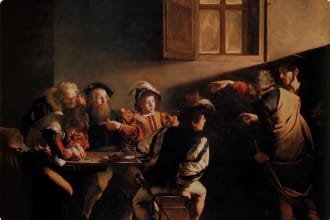
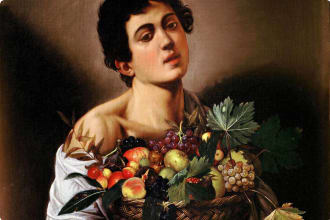

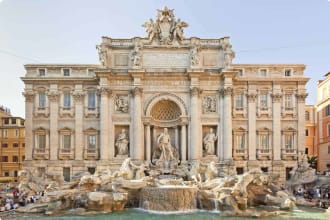
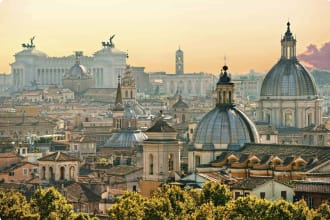
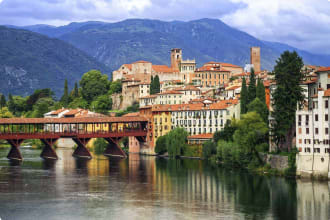


Itinerary
20 days
Day 1: Milan
Accommodation: Eurohotel, or similar
We meet at the hotel for a tour orientation and drinks in the afternoon, followed by a welcome dinner at a local restaurant.
Day 2: Milan
Accommodation: Eurohotel, or similar
Today, we take an introductory walking tour of Milan, with visits to the Cathedral to view Da Vinci’s the Last Supper.
In the afternoon, we visit the magnificent Castello Sforzesco. The Sforza & Colonna family were important patrons for Caravaggio, as well as being a significant force in the social and political life of Milan.
The art museums and galleries within the Castle have some beautiful pieces, including Michelangelo’s unfinished ‘Rondanini Pietà’.
Day 3: Milan
Accommodation: Eurohotel, or similar
Today is a full day art tour of Milan.
Today with a local guide we visit the Pinacoteca Brera and the Pinacoteca Ambrosiana. We also visit the Church of San Fedele, to view works by Simone Peterzano, Caravaggio’s tutor during his early years as an artist.
Simone Peterzano (c. 1535 – 1599) was an Italian painter of the later Mannerism, native of Venezia. He is mostly known as the master of Caravaggio.
Day 4: Florence
Accommodation: Hotel Delle Nazioni or similar
Today, we transfer to Florence, via a stop for lunch in Bologna. On arrival in Florence, we enjoy a guided tour of the Palatine Gallery at the Pitti Palace.
Here, the group will see numerous important paintings by Caravaggio, including Portrait of Fra Antonio Martelli, Sleeping Cupid, and The Tooth Puller. This last is currently only attributed to Caravaggio.
The Palatine also has many other wonderful artworks, from Caravaggio’s time and beyond.
In the evening, we head back to the hotel for another group dinner.
Day 5: Florence
Accommodation: Hotel Delle Nazioni or similar
The morning starts with a guided tour of the Uffizi, to see the paintings Bacchus, Medusa, and The Sacrifice of Isaac.
The rest of the day is yours to enjoy at leisure.
Day 6: Rome
Accommodation: Hotel Assisi or similar
This morning, we transfer south to Rome.
On arrival, we enjoy an orientation tour of Caravaggio’s Rome. This walking tour includes key sites, such as the Spanish Steps, Trevi Fountain, and Piazza Navona. We will also visit the Pantheon, if time permits.
In the evening, we enjoy another group dinner.
Day 7: Rome
Accommodation: Hotel Assisi or similar
Today, we enjoy a full day art tour of the Galleria Doria Pamphilj and the Contarelli Chapel at San Luigi dei Francesi.
The Doria Pamphilj gallery is housed in a majestic palazzo owned by one of Rome’s most ancient noble families, and houses several Caravaggio canvases: Penitent Magdalene, Rest on the Flight to Egypt, and one of his many depictions of John the Baptist. Two of these key paintings are described below:
1. Repentant Mary Magdalene (122.5 x 98.5 cm; oil on canvas (FC 357))
This painting dates back to the early stage of Caravaggio’s activities in Rome (c. 1595) and portrays the Sinner who has just renounced her former worldly life.
2. Rest on the Flight into Egypt (135.5 x 166.5 cm; oil on canvas (FC 241))
The Rest is one of the masterpieces of the young Caravaggio. This is the artist’s first “historic” painting of such substantial dimensions. Arriving in Rome at the early 1590s, he began by painting half figures on small canvasses. In the Rest, dated around 1595, some points in the style of the landscape and tones of the light still show the influence of Lombardy and Veneto in the artist’s vision. The same model seems to have posed for this Madonna as for the Magdalene painted not long afterwards.
In the afternoon, we visit The Contarelli Chapel. This chapel contains the masterworks The Calling of Saint Matthew, Martyrdom of Saint Matthew, and Inspiration of Saint Matthew. This last piece was commissioned to replace the statues originally planned for the altarpiece, and forms the final part of this hugely evocative triptych. For a short video of this museum, please follow this link: https://www.youtube.com/watch?v=OcUMAHfo9MA
Cardinal Francesco Maria Del Monte, suggested that his own personal painter, Michelangelo Merisi, known from his home town as Caravaggio, should be contracted to paint oils on canvas for the two side walls where Cesari would obviously never put his murals in the Contarelli Chapel. Giuseppe Cesari, one of the foremost artists then active in Rome, was contracted to fresco the two side walls and the vault. Cesari finished the vault by 1593, but then his attention and time were taken by Papal commissions.
The two paintings commissioned by the Cardinal and completed by Caravaggio caused a sensation. The third and final work commissioned, The Inspiration of Saint Matthew, the first version was rejected for the vulgarity of the saint’s crossed legs and bare feet, and for a overly-familiar angel. In the second version on view today the angel keeps a respectful distance, and the saint is a little more dignified.
The Inspiration of Saint Matthew, Caravaggio, 1599-1600
Caravaggio’s solution to decorating a typically gloomy Roman church interior is considered by commentators as revolutionary and brilliant. Visitors to the Contarelli Chapel today are confronted with paintings that use the gloom instead of fighting against it. The paintings themselves are dark – mostly shadow – one can surmise that perhaps the Caravaggio also considered the lighting in the chapel: each of the two side paintings is lit by a beam of light coming from the same direction as the natural lighting in the chapel itself.
Although the three paintings by Caravaggio are today the star attraction of the chapel, the frescos by Cesari, who, although overshadowed by Caravaggio, nevertheless represent the final flowering of the Mannerist school. The Cesari fresco was finished about 1593, at which point Caravaggio was working for Cesari – who was only two years older. Cesari, an acute businessman as well as a skilful artist, valued his assistant’s gift for painting flowers and fruit, and Caravaggio may have had a hand in the swags of greenery decorating the vault.
Day 8: Rome
Accommodation: Hotel Assisi or similar
This morning, we enjoy a guided tour of the Galleria Borghese, home of Rome’s largest single collection of Caravaggio paintings: Young Sick Bacchus, Boy with a Basket of Fruit, Saint Jerome Writing, Still Life with Fruit on a Stone Ledge, Madonna and Child with St. Anne, John the Baptist, and David with the Head of Goliath. It also contains the work Still Life with Flowers and Fruit, which may be by Caravaggio, or one of his followers.
In the afternoon, we enjoy a private tour of the Casino Ludovisi, the last surviving remnant of what was once a sprawling country estate. Here, we have the chance to see a Caravaggio work that is not on canvas: the ceiling painting Jupiter, Neptune and Pluto. This unusual oil painting – similar in many ways to a fresco – covers the ceiling of one of the palace’s halls with a scene from Roman myth. It was commissioned by the great art lover and collector, cardinal Francesco Maria del Monte, who played a major part in establishing Caravaggio’s career in Rome.
Day 9: Rome
Accommodation: Hotel Assisi or similar.
Today we enjoy a full day guided tour of the Palazzo Barberini and Capitoline Museums. The works and stories of Caravaggio dominate the day.
The National Gallery of Antique Art at palazzo Barberini holds 4 Caravaggio masterworks: Judith Beheading Holofernes, Narcissus, another John the Baptist, and Saint Francis in Prayer.
The Capitoline houses the canvases the Fortune Teller, and a further John the Baptist.
Day 10: Rome
Accommodation: Hotel Assisi or similar.
Today we take a tour of the Palazzo Colonna. This was the home of the enormously wealthy and influential Colonna family, who were patrons of Caravaggio throughout his career. In fact, it was to this palazzo that he ran first after the murder that caused him to flee to Naples and then to Malta. For more information on the Palazzo Colonna, please visit this link: http://www.galleriacolonna.it/en/colonna-palace/.
The afternoon is free to continue sightseeing at your own pace.
Day 12: Sliema
Accommodation: Victoria Hotel or similar
We start the day with a city tour of Valletta, including a visit to St John’s Co-Cathedral to view what many consider to be Caravaggio’s crowning achievement, The Beheading of John the Baptist. Also present is the melancholy and evocative Saint Jerome Writing. Separated by only one or two years, this image is a striking contrast to the painting of the same name in the Galleria Borghese.
We also make a stop at the Grandmaster’s Palace, for an insight into the power and influence of the Order which was Caravaggio’s patrons during his time on Malta.
In the afternoon, we take a tour of the Three Cities of Vittoriosa, Senglea, and Cospicua, across the bay from Valletta.
Day 13: Sliema
Accommodation: Victoria Hotel or similar
In the evening, we take an excursion to the pretty fishing village of Marsaxlokk for dinner. Here, the pace of life has changed little since Caravaggio’s time, and we have the chance to try local delicacies and wines.
Day 14: Taormina
Accommodation: Hotel Del Corso or similar.
This morning, we depart the hotel early in the morning and take the 6:30 ferry to Pozzallo in southern Sicily.
On arrival in Pozzallo, the Sicilian touring coach takes us to Syracuse, where we meet with the local guide for a tour of the main sights including entrance to Santa Lucia alla Badia, to view Caravaggio’s unusual Burial of Saint Lucy.
After lunch at a local restaurant, we visit to the gallery at the Palazzo Bellomo, to view important pieces by Sicilian painter Mario Minniti. Minniti was a lifelong friend of Caravaggio’s, and is also believed to have been the model for many of his early pieces. Minniti was also instrumental in procuring many of Caravaggio’s Sicilian commissions.
In the afternoon, we continue north to the charming town of Taormina.
Day 15: Taormina
Accommodation: Hotel Del Corso or similar.
This morning, we visit Messina to tour the Regional Museum here. As well as Caravaggio’s Raising of Lazarus and the Adoration of the Shepherds. The museum also houses the Miracle at Nain, another major work by Mario Minniti.
We head back to Taormina in the afternoon, for a walking tour of the town including entrance to its spectacular Greek theatre.
Day 16: Palermo
Accommodation: Hotel Centrale Palace or similar
Today, we travel across the heart of Sicily to the tiny town of Agira, where we visit the church of Sant’Antonio da Padova, with its magnificent painting of The Five Wounds of Christ, by Minniti.
Afterward, we continue to Enna, perched high above the plains, where there is free time to find lunch, before we continue on to Palermo, in the far northwest corner of Sicily.
Day 17: Palermo-Naples
Accommodation: Overnight Ferry to Naples.
We start the day with a guided tour of the one remaining Caravaggio work in Palermo: the Seven Works of Mercy at Pio Monte della Misericordia.
Afterward, we visit the beautiful Oratory of San Lorenzo, which now houses a high-tech reproduction of Caravaggio’s Nativity with St Francis and St Lawrence. The original was stolen in 1969, and remains one of the most valuable paintings on Interpol’s unsolved art crimes list.
The oratory’s interior, in wedding-cake white stucco by Giacomo Serpotta, is a beautiful artwork in itself, and well worth a visit.
In the afternoon, we enjoy free time before coming together to board the overnight ferry to Naples.
Day 18: Naples-Sorrento
Accommodation: Carlton Hotel or similar.
On arrival in the morning,we head to a local café for breakfast.
We then enjoy a full day tour of Naples, including entrance to the Museo del Capodimonte to view the painting of The Flagellation of Christ, as well as Titian’s Annunciation, which used to hang with it in the church of San Domenico Maggiore.
We transfer to Sorrento in the afternoon, and check in to our new hotel.
Day 19: Sorrento
Accommodation: Carlton Hotel or similar
This morning, we begin the day with a visit to San Domenico Maggiore, before heading to Sant’Anna dei Lombardi, where weview the stunning terracotta Lamentation by Guido Mazzoni. Caravaggio is known to have been influenced by the closely-observed, naturalistic figures in Mazzoni’s work.
In the afternoon, we visit the Palazzo Zevallos Stigliano, another palace owned by the Colonna family, Caravaggio’s patrons and protectors. Here we see Caravaggio’s last work, completed mere months before his death: the Martyrdom of Saint Ursula.
In the evening, we enjoy a farewell dinner at a local restaurant.
Day 20: Rome
This morning, we transfer north to Rome. There, we say our farewells and the tour draws to a close.
Includes / Excludes
What’s included in our Tour
- 19 nights hotel accommodation.
- Breakfast daily and 10 dinners.
- Applicable entry fees and services of local guides.
- Transport, field trips and excursions as indicated.
- Touring by comfortable and modern coach as well as public transport.
- 1 internal Milan to Sliema (Malta) (limits may apply to luggage allowance)
- Ferry services as per itinerary.
- Gratuities and necessary tips.
- Detailed Tour Information Booklet.
- Services of an Odyssey program leader.
What’s not included in our Tour
- International airfares and departure taxes.
- Comprehensive travel insurance.
- Items of a personal nature, such as telephone calls and laundry.
- Meals not specified in the itinerary.
Participants must be able to carry their own luggage, climb and descend stairs, be in good health, mobile and able to participate in 3-5 hours of physical activity per day, the equivalent of walking / hiking up to 8 kilometers per day on uneven ground.
Book now
Make it a private tour
Easing your journey
Crossing international borders with restrictions
The list of requirements to travel internationally has changed and will continue to change for several years. Odyssey is here to assist you in managing your way through these requirements:
For more information see our Crossing international borders with restrictions page.
Book With Confidence
If less than 30 days before your tour starts you are unable to travel as a result of Government travel restrictions, Odyssey Traveller will assist you with a date change, provide you with a credit or process a refund for your booking less any non-recoverable costs.
See Terms and conditions for details.
Peace of Mind Travel
The safety of our travellers, tour leader, local guide and support staff has always been our top priority and with the new guidelines for public health and safety for keeping safe for destinations around the world, we’ve developed our plan to give you peace of mind when travelling with us.
See Peace of Mind Travel for details.
Reading List Download PDF
Caravaggio: A Life Sacred and Profane
Andrew Graham-Dixon
Michelangelo Merisi da Caravaggio lived the darkest and most dangerous life of any of the great painters. The worlds of Milan, Rome and Naples through which Caravaggio moved and which Andrew Graham-Dixon describes brilliantly in this book, are those of cardinals and whores, prayer and violence. On the streets surrounding the churches and palaces, brawls and swordfights were regular occurrences. In the course of this desperate life Caravaggio created the most dramatic paintings of his age, using ordinary men and women - often prostitutes and the very poor - to model for his depictions of classic religious scenes. Andrew Graham-Dixon's exceptionally illuminating readings of Caravaggio'spictures, which are the heart of the book, show very clearly how he created their drama, immediacy and humanity, and how completely he departed from the conventions of his time.
Caravaggio: Complete Works
Sebastian Schultze
A revolution in painting: The mysterious genius who transformed European art. Carvaggio, or more accurately Michelangelo Merisi da Caravaggio (1571–1610), was always a name to be reckoned with. Notorious bad boy of Italian painting, the artist was at once celebrated and controversial: Violent in temper, precise in technique, a creative master, and a man on the run.
This work offers a comprehensive reassessment of Caravaggio’s entire oeuvre with a catalogue raisonné of his works. Each painting is reproduced in large format, with recent, high production photography allowing for dramatic close-ups with Caravaggio's ingenious details of looks and gestures.
Five introductory chapters analyze Caravaggio's artistic career from his early struggle to make a living, through his first public commissions in Rome, and his growing celebrity status. They look at his increasing daring with lighting and with a boundary-breaking realism which allowed even biblical events to unfold with an unprecedented immediacy before the viewer. An accompanying artist chronology follows Caravaggio's equally tumultuous personal life.
This is the definitive work about Caravaggio for generations to come, to be delved into and put on display, with its slipcase neatly converting into a book stand.
Simon Schama's Power of Art
Simon Schama
"Great art has dreadful manners..."Simon Schama observes at the start of his epic exploration of the power, and whole point, of art. "The hushed reverence of the gallery can fool you into believing masterpieces are polite things, visions that soothe, charm and beguile, but actually they are thugs. Merciless and wily, the greatest paintings grab you in a headlock, rough up your composure and then proceed in short order to re-arrange your sense of reality..."With the same disarming force, Power of Art jolts us far from the comfort zone of the hushed art gallery, as Schama closes in on intense make-or-break turning points in the lives of eight great artists who, under extreme stress, created something unprecedented, altering the course of art forever. The embattled heroes—Caravaggio, Bernini, Rembrandt, David, Turner, Van Gogh, Picasso and Rothko—each in his own resolute way faced crisis with steadfast defiance. The masterpieces they created challenged convention, shattered complacency, shifted awareness, and changed the way we look at the world. With powerfully vivid story-telling, Schama explores the dynamic personalities of the artists and the spirit of the times they lived through, capturing the flamboyant theater of bourgeois life in Amsterdam, the passion and paranoia of Revolutionary Paris, and the carnage and pathos of civil-war Spain. Most compelling of all, Power of Art traces the extraordinary evolution of eight world-class works of art. Created in a bolt of illumination, such works "tell us something about how the world is, how it is to be inside our skins, that no more prosaic source of wisdom can deliver. And when they do that they answer, irrefutably and majestically, the nagging question of every reluctant art-conscript... ‘OK, OK, but what's art really for?'"
Caravaggio and the Creation of Modernity
Troy Thomas
Undeniably one of the greatest artists of all time, Michelangelo Merisi da Caravaggio would develop a radically new kind of psychologically expressive, realistic art and, in the sixteenth and seventeenth centuries, would lay the foundations for modern painting. His paintings defied tradition to such a degree that the meaning of his works have divided critics and viewers for centuries. In this original study, Troy Thomas examines Caravaggio’s life and art in relationship to the profound beginnings of modernity, exploring the many conventions that Caravaggio utterly dismantled with his extraordinary genius.
Thomas begins with an in-depth look at Caravaggio’s early life and works and examines how he refined his realism, developed his obsession with darkness and light, and began to find the subtle and clever ambiguity of genre and meaning that would become his trademark. Focusing acutely on the inherent tensions, contradictions, and ambiguities within Caravaggio’s paintings, Thomas goes on to examine his mature religious works and the ways he created a powerful but stark and enigmatic expressiveness in his protagonists. Lastly, he delves into the artist’s final hectic years as a fugitive killer evading papal police and wandering the cities of southern Italy.
Richly illustrated in color throughout, Caravaggio and the Creation of Modernity will appeal to all of those fascinated by the history of art and the remarkable lives of Renaissance masters.
Caravaggio: The Artist and His Work
Sybille Ebert-Schifferer
The young Michelangelo Merisi da Caravaggio (1571–1610) created a major stir in late-sixteenth-century Rome with the groundbreaking naturalism and highly charged emotionalism of his paintings. One might think, given the vast number of books that have been written about him, that everything that could possibly be said about the artist has been said. However, the author of this book argues, it is important to take a fresh look at the often repeated and widely accepted narratives about the artist’s life and work.
Sybille Ebert-Schifferer subjects the available sources to a critical reevaluation, uncovering evidence that the efforts of Caravaggio’s contemporaries to disparage his character and his artwork often sprang from their own cultural biases or a desire to promote the artistic achievements of his rivals. Contrary to repeated claims in the literature, the painter lacked neither education nor piety, but was an extremely accomplished technician who developed a successful marketing strategy. He enjoyed great respect and earned high fees from his prestigious clients while he also inspired a large circle of imitators. Even his brushes with the law conformed to the behavioral norms of the aristocratic Romans he sought to emulate.
The beautiful reproductions of Caravaggio’s paintings in this volume make clear why he captivated the imagination of his contemporaries, a reaction that echoes today in the ongoing popularity of his work and the fierce debate that it continues to provoke among art historians.
Caravaggio
John T. Spike
The result of over 20 years of research by a leading authority on Caravaggio, this work reproduces every known work of the artist. John T. Spike explores in detail Caravaggio's scandalous life and provocative work. Placing Caravaggio within the broad panorama of society and ideas at the turn of the 17th century, the author sets a detailed stage for an artist who has been called "the first modern painter." Caravaggio (1571-1610) reflected in his canvases his own desires and spiritual crises to an extent no one ever had imagined possible, and he shocked his contemporaries by portraying the saints and virgins of Christianity with the faces and bodies of his companions and lovers in Rome's demimonde. Accompanying the book is a CD-ROM in which all of Caravaggio's extant paintings, as well as lost and rejected works, are described. Each entry specifies the work's medium, dimensions, location, and provenance, and provides an annotated bibliography of sources. Most of the entries conclude with a brief technical analysis.
Caravaggio
Catherine Puglisi
M: The Man Who Became Caravaggio
Peter Robb
Caravaggio: Realism, Rebellion, Reception
Genevieve Warwick (ed.)
This volume considers Caravaggio's revolutionary "realism" from a range of perspectives by a plurality of leading scholars. First, it advances our understanding of Caravaggio's relationship with the "new" science of observation championed by Galileo. Second, it examines afresh the theoretical nature of Caravaggio's seemingly direct "realism." Third, it extends the horizons of research on Caravaggio's complex intellectual and social milieu between high and low cultures. Fourth, it redefines our understanding of the relationship between Caravaggio's life and his art in historical terms. As some reviewers have indicated, this book does not contain colour reproductions of Caravaggio's works. Rather, it is best suited for the reader seeking to learn more about Caravaggio study from leading experts.
Caravaggio: The Art of Realism
John Varriano
The dramatic realism of Caravaggio’s art has fascinated viewers since the seventeenth century. Yet no prior monograph presents the thorough investigation of Caravaggio’s “realism” ventured in John Varriano’s remarkable book. Forgoing the “life and works” format of most earlier monographs, Varriano concentrates on uncovering the principles and practices—the intellect and the imagination—that guided Caravaggio’s eye and brush as he made some of the most controversial paintings in the history of art.
Caravaggio’s irascible personality, libertine sexual preferences, and lawless, even murderous, behavior have attracted as much heated commentary as his realism. Varriano sheds important new light on these disputes by tracing the autobiographical threads in Caravaggio’s paintings and framing these within the context of contemporary Italian culture. Ultimately, Varriano links Caravaggio’s aggressive persona and innovative methods to changes taking place throughout seventeenth-century Europe.
Caravaggio: The Art of Realism begins with a highly original investigation of the artist’s studio practices. In subsequent chapters, Varriano discusses Caravaggio’s response to the material culture of his day, his use of gesture and expression, and his eroticism and violence as well as other issues central to the painter’s legendary realism.
Caravaggio: The Art of Realism will appeal to students and the general reader as well as to specialists in the field. Varriano has a gift for presenting complex scholarship in a clear, accessible way. The book contains numerous color illustrations that will help readers experience Caravaggio’s art and follow the author’s informative discussion of such famed paintings as Love Victorious and David with the Head of Goliath.
Caravaggio: Art, Knighthood and Malta
David M. Stone and Keith Sciberras
Caravaggio's sojourn on the island of Malta in 1607-08 is one of the most fascinating episodes in Baroque art. The painter had committed a murder in Rome in May 1606 and subsequently fled to Naples, where he soon became well-known for his gritty, naturalistic altarpieces. Suddenly, in the early summer of 1607, he decided to leave his thriving Neapolitan studio for the newly built city of Valletta, the headquarters of the Knights of Malta. The chance to obtain a knighthood and redeem himself for his Roman crime was no doubt foremost in his mind.
Written by two leading authorities in the field, this richly illustrated book tells the story of Caravaggio's voyage to Malta, his interactions with the Knights and their leader, Grand Master Alof de Wignacourt, and the magnificent paintings he made for them. Among the works he produced on the island are the Beheading of St John the Baptist - his largest and only signed picture - and the St Jerome Writing, a canvas of exceptional pyschological force.
The book presents new iconographic, technical, and stylistic analyses of all of the Maltese pictures as well as two chapters devoted to discussions of Caravaggio's importance in the history of art and the chronological problems in his late works. Based on original archival research, this study also includes an account of Caravaggio's crime in Malta, his imprisonment, and his daring escape to Sicily.
Sicily: A Short History, from the Greeks to Cosa Nostra
John Julius Norwich
Sicily is the key to everything' Johann Wolfgang von Goethe
The author of the classic book on Venice turns his sights to Sicily in this beautiful book full of maps and colour photographs.
'I discovered Sicily almost by mistake . . .We drove as far as Naples, then put the car on the night ferry to Palermo. There was a degree of excitement in the early hours when we passed Stromboli, emitting a rich glow every half-minute or so like an ogre puffing on an immense cigar; and a few hours later, in the early morning sunshine, we sailed into the Conca d'Oro, the Golden Shell, in which the city lies. Apart from the beauty of the setting, I remember being instantly struck by a change in atmosphere. The Strait of Messina is only a couple of miles across and the island is politically part of Italy; yet somehow one feels that one has entered a different world . . . This book is, among other things, an attempt to analyse why this should be.'
The stepping stone between Europe and Africa, the gateway between the East and the West, at once a stronghold, clearing-house and observation post, Sicily has been invaded and fought over by Phoenicians and Greeks, Carthaginians and Romans, Goths and Byzantines, Arabs and Normans, Germans, Spaniards and the French for thousands of years. It has belonged to them all - and yet has properly been part of none.
John Julius Norwich was inspired to become a writer by his first visit in 1961 and this book is the result of a fascination that has lasted over half a century. In tracing its dark story, he attempts to explain the enigma that lies at the heart of the Mediterranean's largest island.
This vivid short history covers everything from erupting volcanoes to the assassination of Byzantine emperors, from Nelson's affair with Emma Hamilton to Garibaldi and the rise of the Mafia. Taking in the key buildings and towns, and packed with fascinating stories and unforgettable characters, Sicily is the book he was born to write.


